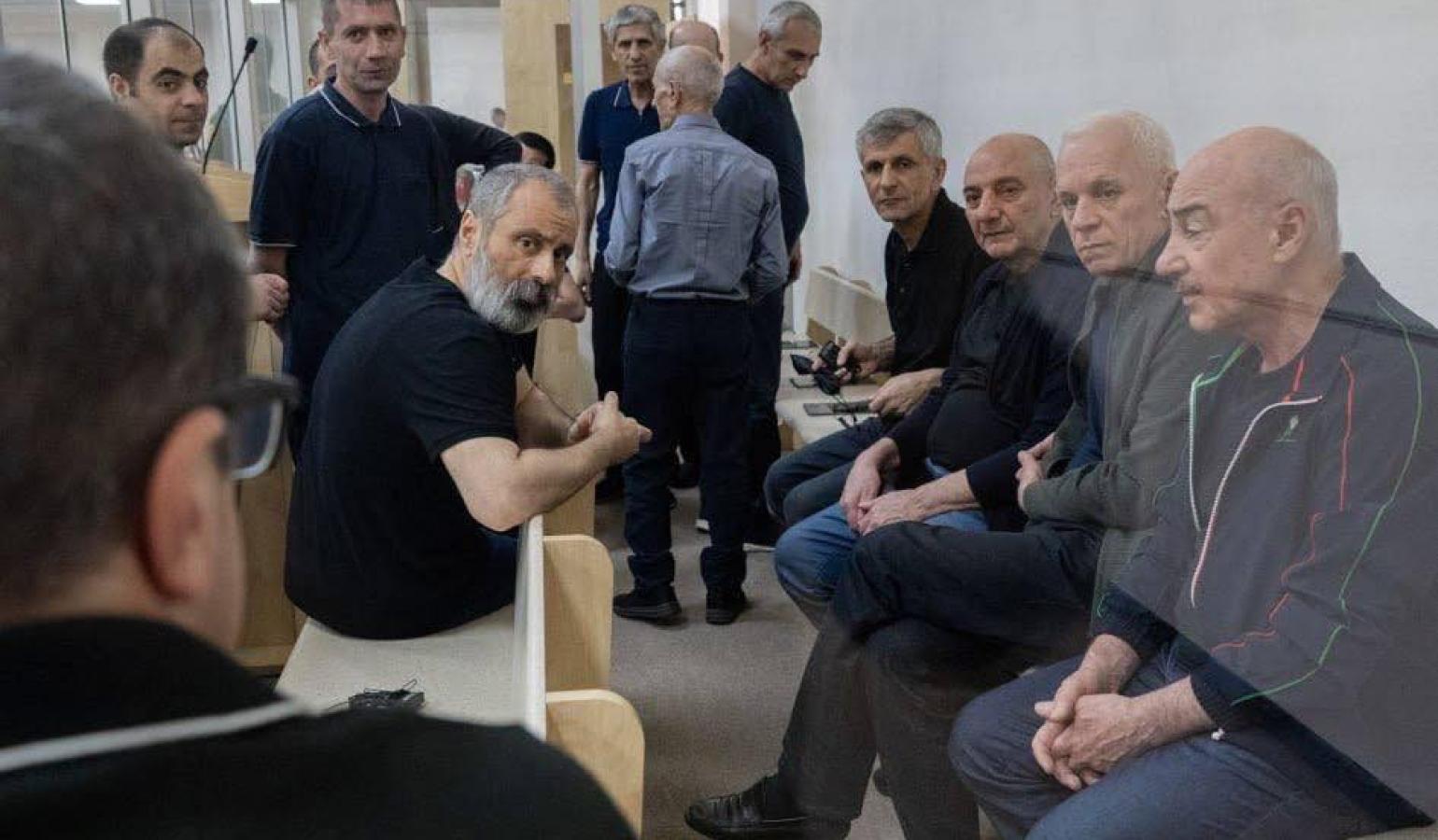
The court cases involving Armenian prisoners being held in Baku contain several violations. In an interview with MediaLab, Siranush Sahakyan, who leads the International and Comparative Law Center, explained the current status of the trials, the health of the prisoners, and whether they might be released soon.
Sahakyan said the trials are still in the evidence review stage, but there are “numerous ongoing procedural violations and abuses of human rights.” Despite concerns being raised, Azerbaijani officials have not taken any action to address these issues. “This once again confirms our position that what is happening are staged trials with predetermined outcomes, aimed not at delivering justice, but at legitimizing a political agenda through judicial means,” Sahakyan explained. She said that if things continue the same way, the trials might end before the year is over.
She also spoke about the conditions of the prisoners. The last visit by the International Committee of the Red Cross happened in June. At that time, the prisoners were told it would be the Red Cross's final visit. Since then, no other groups have been allowed to check on the detainees. In this state of complete isolation, if the Armenian prisoners are subjected to continued torture, there are no mechanisms to prevent or expose this abuse. “Alongside the cessation of Red Cross operations, Azerbaijan also appealed to the European Court and exerted special efforts to cancel the application of interim measures and avoid its reporting obligations. It is clear they are trying to present an idealized reality to international bodies, but in fact, we are dealing with parallel realities.”
However, the European Court of Human Rights, after hearing from both the Armenian Government and the legal team representing the prisoners, said no to Azerbaijan’s request. Therefore, Azerbaijan still has to send in official reports every three months. This is very important because it forces them to share information about the Armenian prisoners.
Sahakyan also said that the process of freeing the Armenian prisoners has stopped, and no new talks are happening. The release of the prisoners depends completely on progress with the peace treaty. She explained, “There is no independent and consistent policy of demanding these individuals’ return that is separate from the peace negotiations.”
One moment that drew international attention was when Ruben Vardanyan went on a hunger strike in a Baku prison. After that, more people around the world began to pay attention to the trials. However, Sahakyan noted that meaningful efforts to secure the prisoners' release are still lacking: “There are no special processes or mediation services that could help resolve the issue ahead of a peace agreement being signed.”
When asked if she thinks Azerbaijan will release all prisoners of war after a peace deal is signed, Sahakyan said: “I believe there will be some returns, but there’s no guarantee it will be comprehensive, given that Azerbaijan has consistently violated the ‘all for all’ principle. Therefore, if there are issues for which Azerbaijan wants to maintain leverage, I am convinced that a specific group of individuals will continue to be held unlawfully. That group is likely to include the former military-political leadership of Artsakh—or at least part of it.”